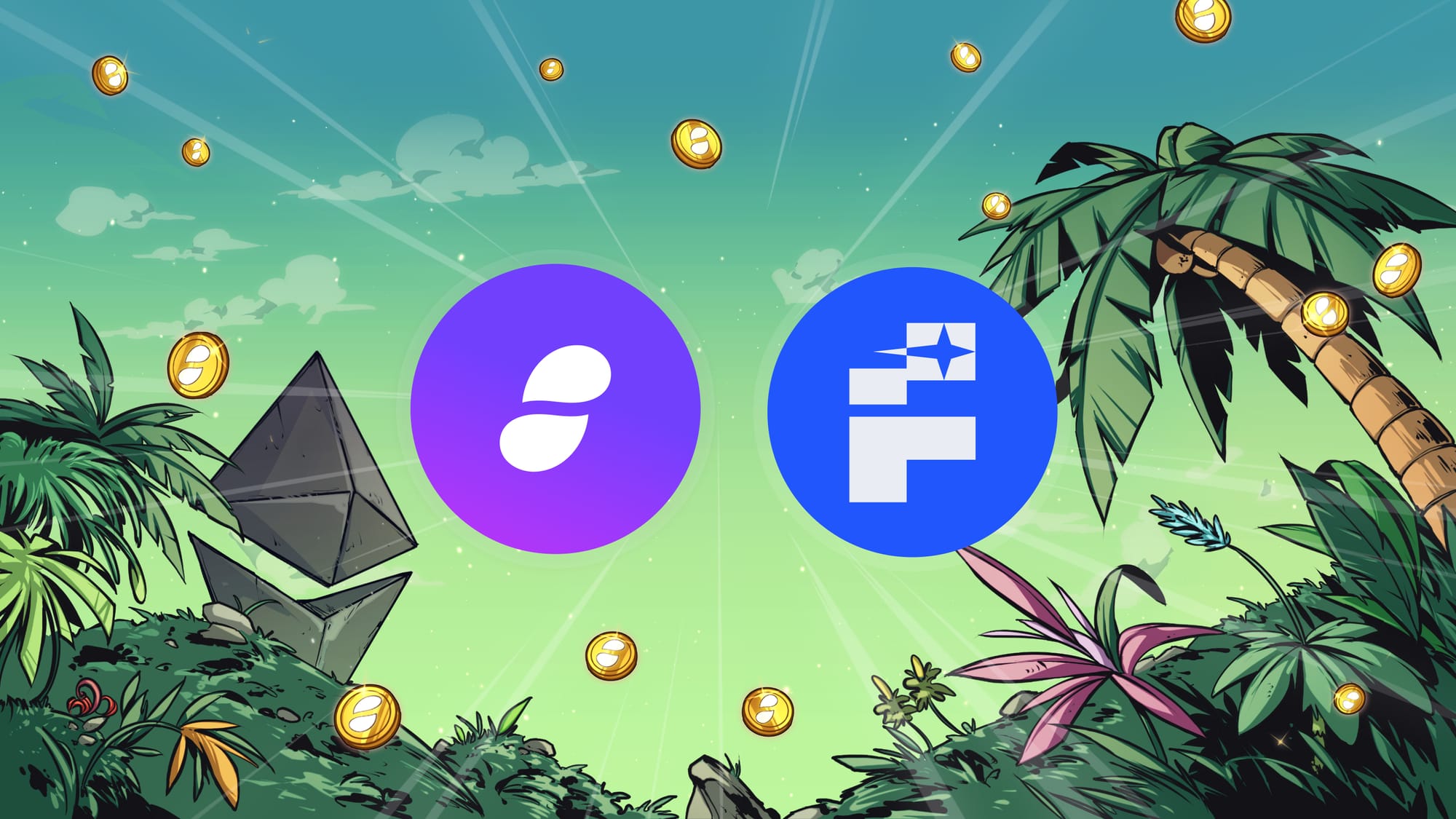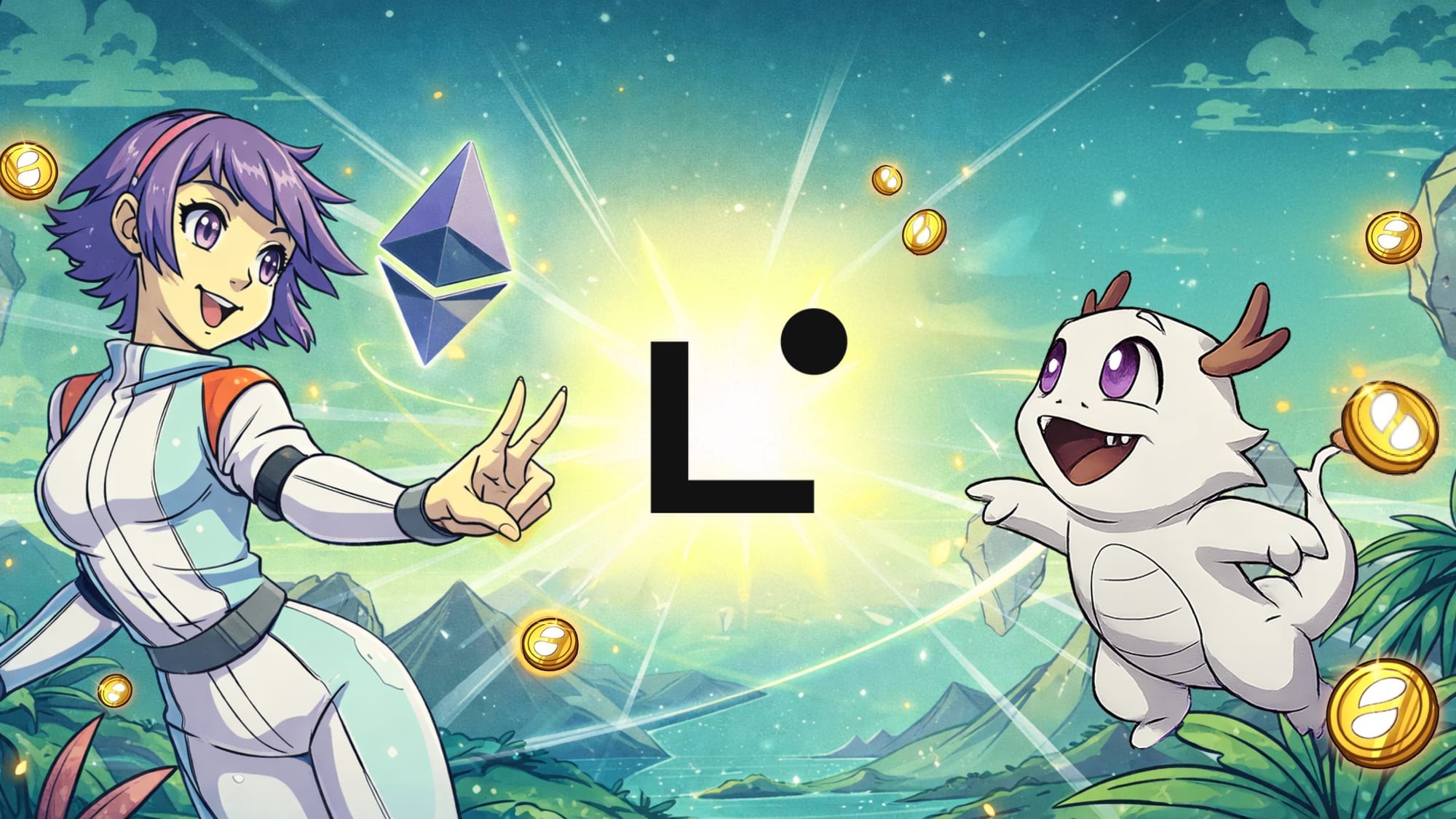Status Network Presents the First Gasless Ethereum L2 at Korea Blockchain Week

At this year's Korea Blockchain Week 2025, held in Seoul on September 23-24, Status Network stole the spotlight by presenting a new paradigm for the Ethereum ecosystem.
The first Ethereum L2 with gas-free transactions at scale, Status Network made a big splash and built deep connections with the Korean blockchain community through four days of activities at KBW 2025.
The day before KBW officially kicked off, Status Network Team Lead Cyp participated in a key panel discussion at the "dApps and Mini-Apps Day" side event.
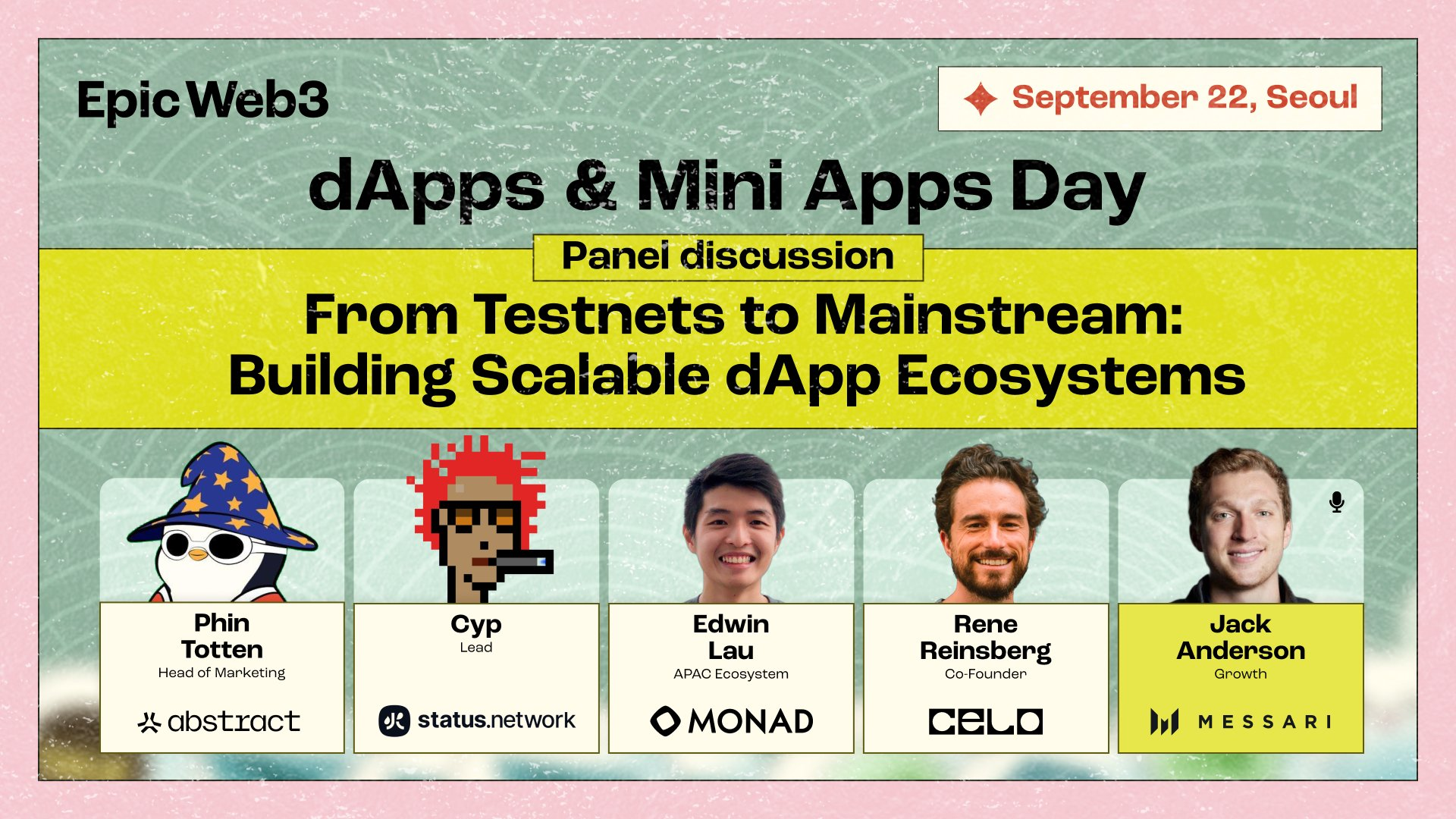
During the panel, "From Testnets to Mainstream: Building Scalable dApp Ecosystems", Cyp discussed the current revenue and sustainability problems in the L2 ecosystem and the solutions Status Network is offering.
"L2s are not making money any more," Cyp said, noting that most L2s are not monetised. As a solution, he said that Status Network proposes a "new business model for L2s". The idea is to create an environment where new apps can be created while still extracting value from the Ethereum community without charging gas fees for processing transactions. This gasless approach provides a fundamental answer to the sustainability of the entire L2 blockchain ecosystem.
In particular, Cyp emphasised the increased privacy and anonymity that will come from enabling gasless transactions:
"Gasless transactions enable more privacy, more account anonymisation," he said, explaining that together with ZK technology, they will create a unique value proposition that no other ecosystem can—a vision that aligns perfectly with Status' privacy-centric philosophy.
He also talked about the importance of finding a balance between web2 and web3.
"Our message to web2 organisations and traditional game studios is, 'We know you hate blockchain, but for digital asset management, this is the best technology,'" he said, noting that the concept of gas fees can be completely abstracted away. This demonstrates the practical attraction of gasless transactions for developers: to deliver the benefits of decentralised digital assets while removing barriers to entry.
For the duration of the main event, Status Network operated a booth on the main floor at Korea Blockchain Week 2025, held at Walkerhill Hotels & Resorts. This year's KBW drew a large crowd of more than 61,700 attendees over the two days.
At the booth, the team explained Status Network's core technical achievement, gasless transactions, and demoed the game ponzihero.xyz, which is currently deployed on the testnet, to onboard visitors onto a new L2 experience without gas fees.
Korean developers and business representatives who visited the booth were particularly interested in the team’s approach to gasless transactions and its benefits for game developers. Over the two days, Status Network made its presence felt in the Korean market and discussed possible future collaborations with several companies.
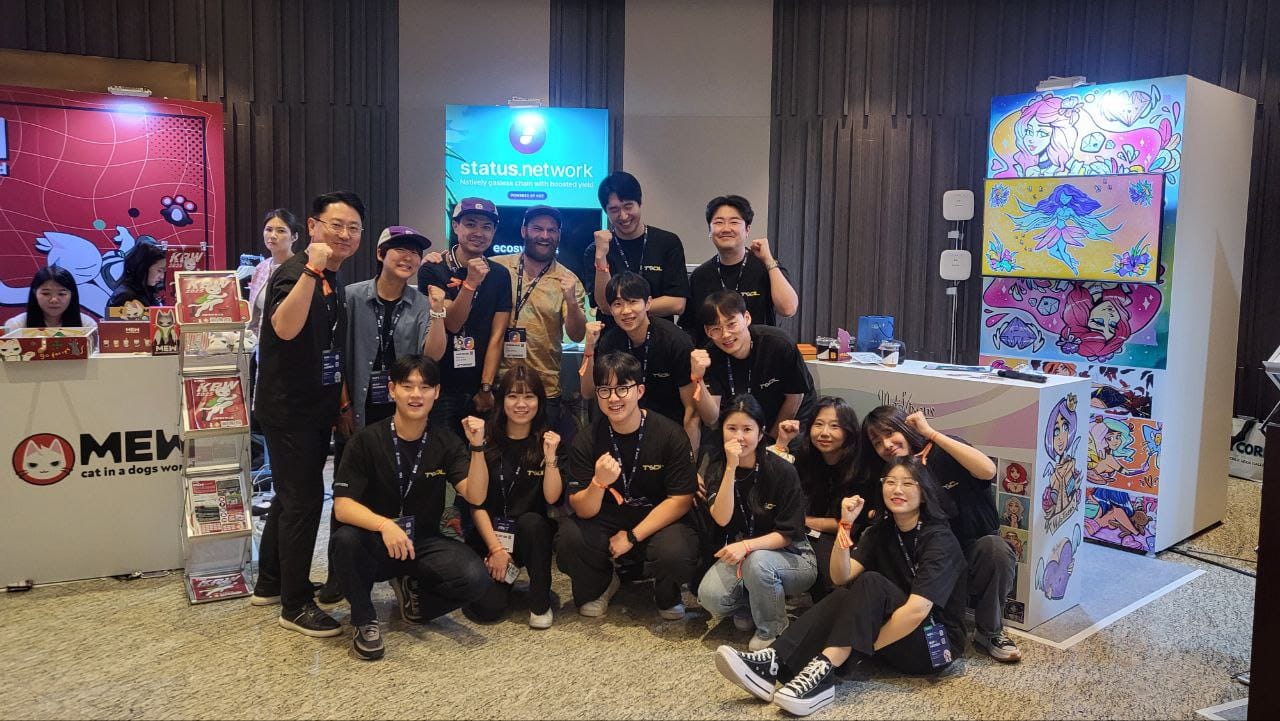
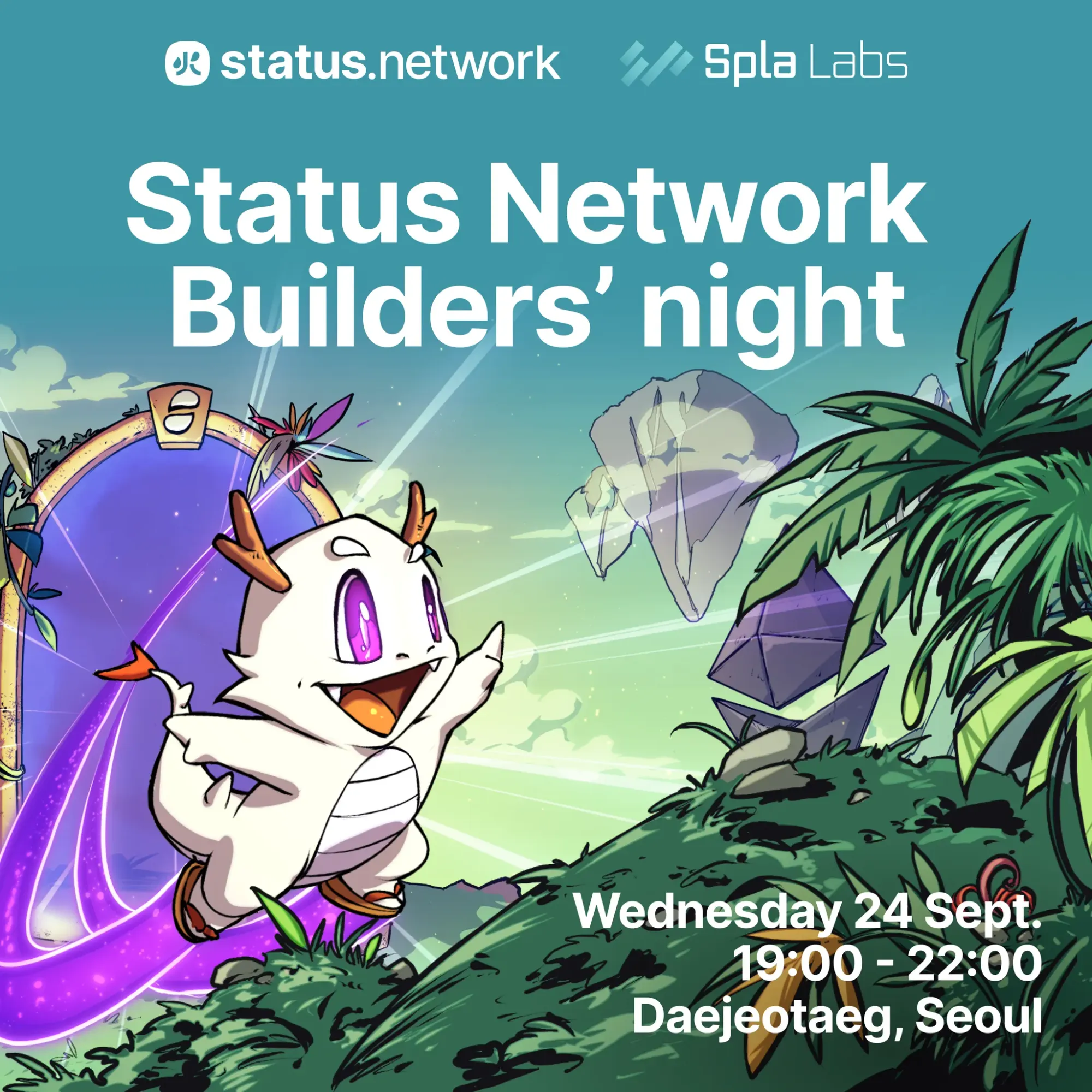
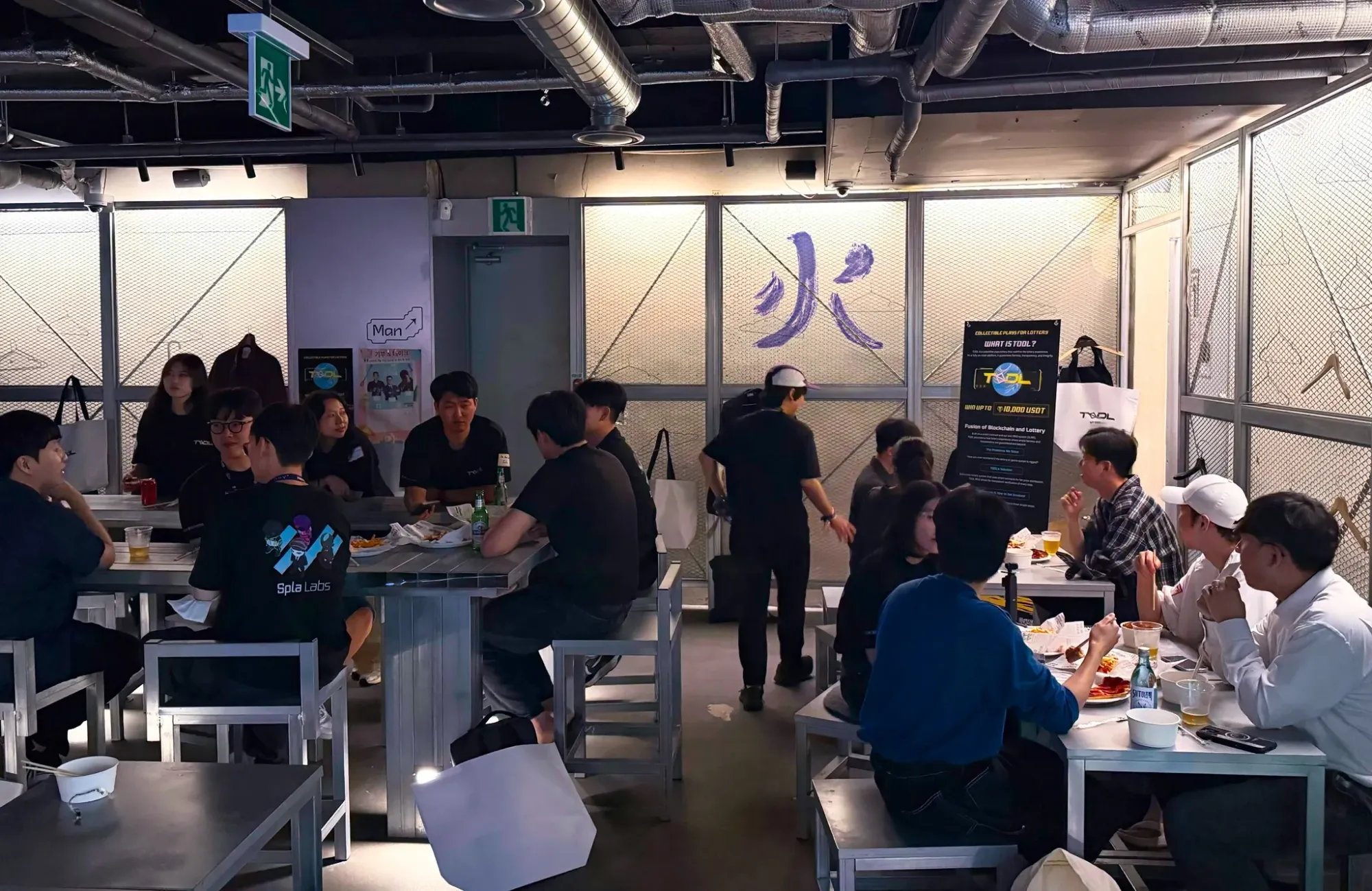
The highlight of this year's KBW was the Builders' Night, held at 7pm on September 24 at Daejeotaeg. The event, hosted by Status Network, featured a detailed technical presentation on the fundamental challenges with removing gas fees and the creative ways the team is solving them.
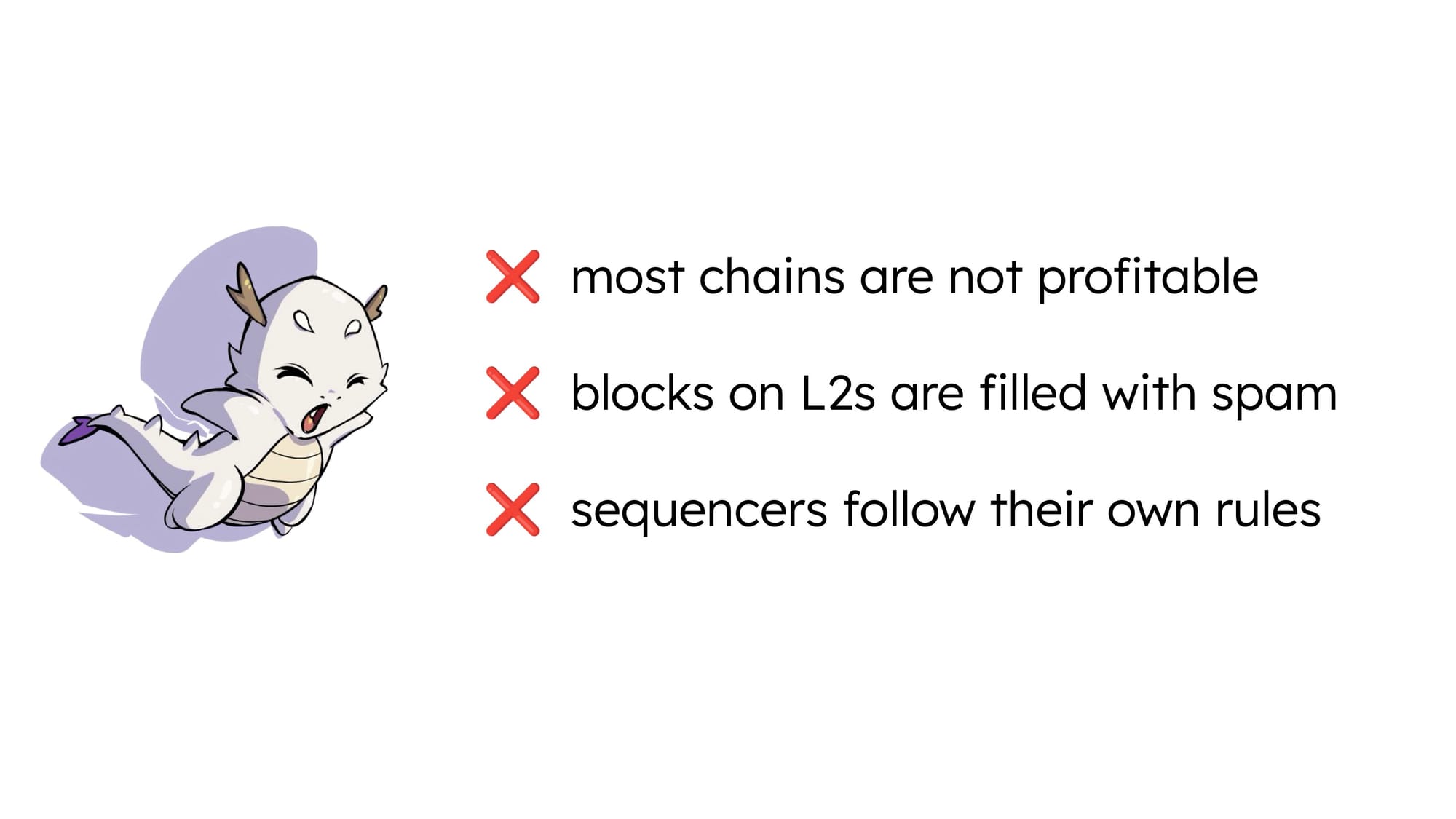
The presentation clearly laid out three main problems currently facing L2s. The first is that most chains are unprofitable; the second is that a significant portion of L2 blocks are filled with spam, with some chains seeing over 60% of transactions attributed to spam bots. Finally, there is the risk of centralisation, with sequencers and block builders following their own rules.
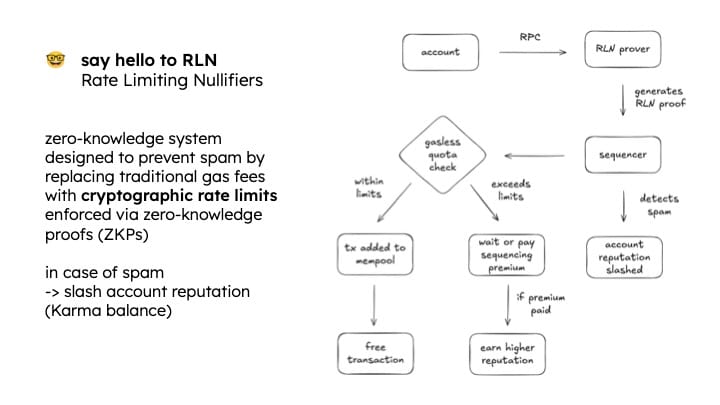
As a solution, Status Network introduces an innovative anti-spam system called RLN (Rate Limiting Nullifiers) that replaces gas fees with a reputation system, enforcing cryptographic rate limits through zero-knowledge proofs.
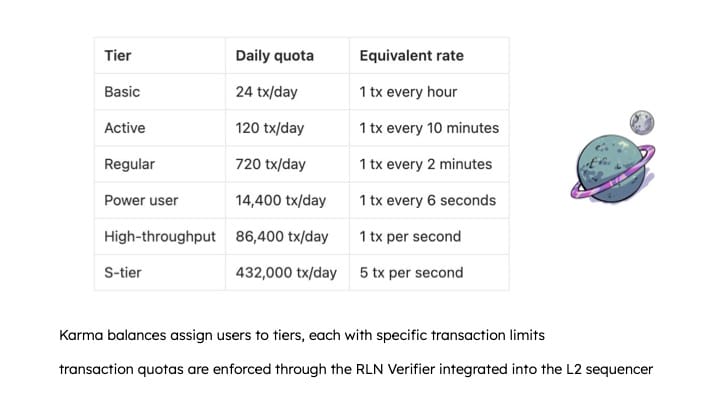
Specifically, Status Network will support six tiers of users (from Basic to S-tier) through its Karma system, each with a tiered transaction limit ranging from one transaction per hour to five transactions per second. This entirely new approach completely changes the existing economic incentive structure of L2 blockchains, determining network accessibility based on users' reputation and contributions.
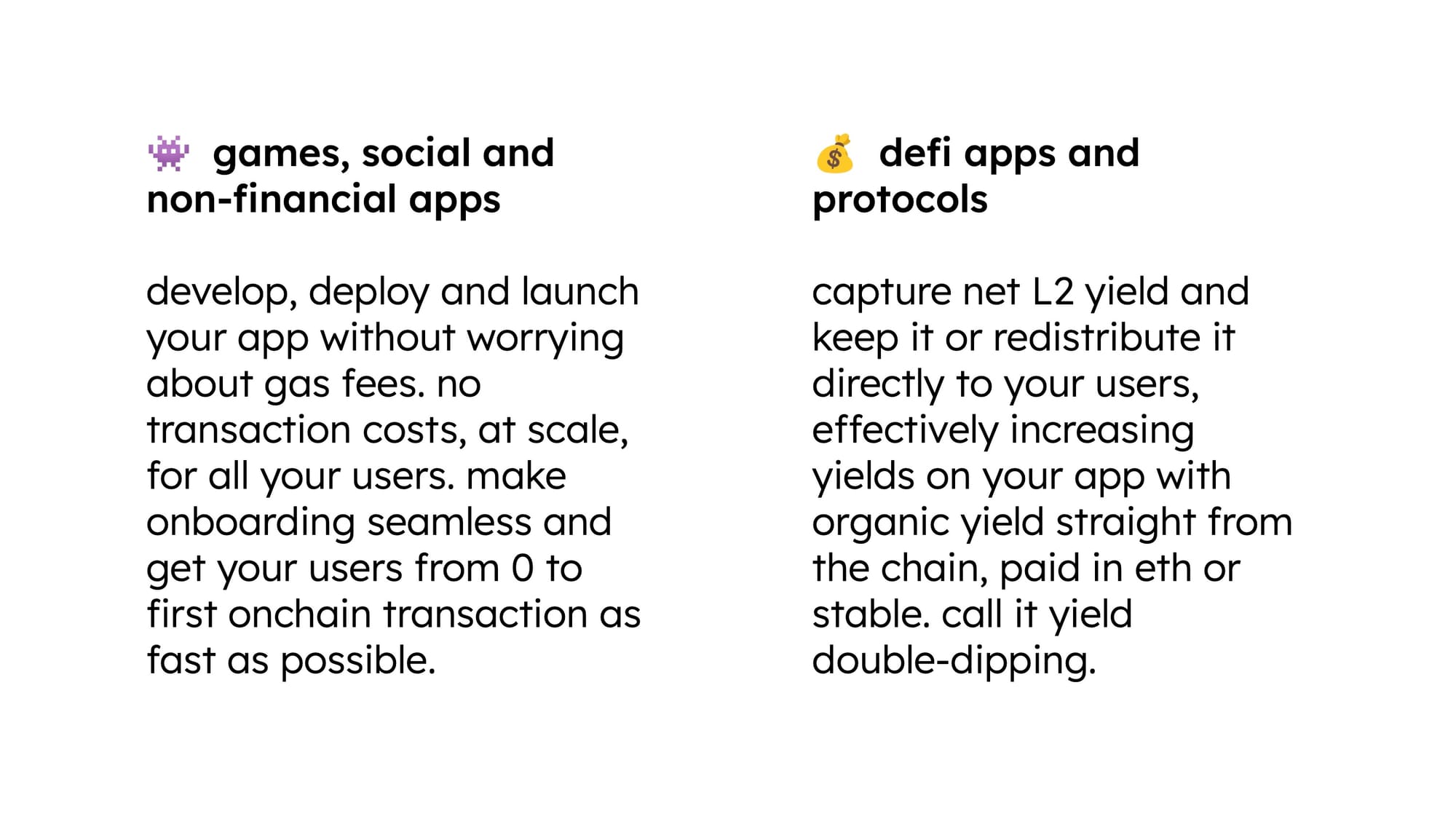
The team also explained that a funding model based on L2 yields would provide sustainable funding for app developers and higher yields for liquidity providers. Specifically, "yield double-dipping" would allow DeFi apps to redistribute their native L2 yields directly to users. This creates an economic mechanism that allows the entire ecosystem to grow self-sustainingly.
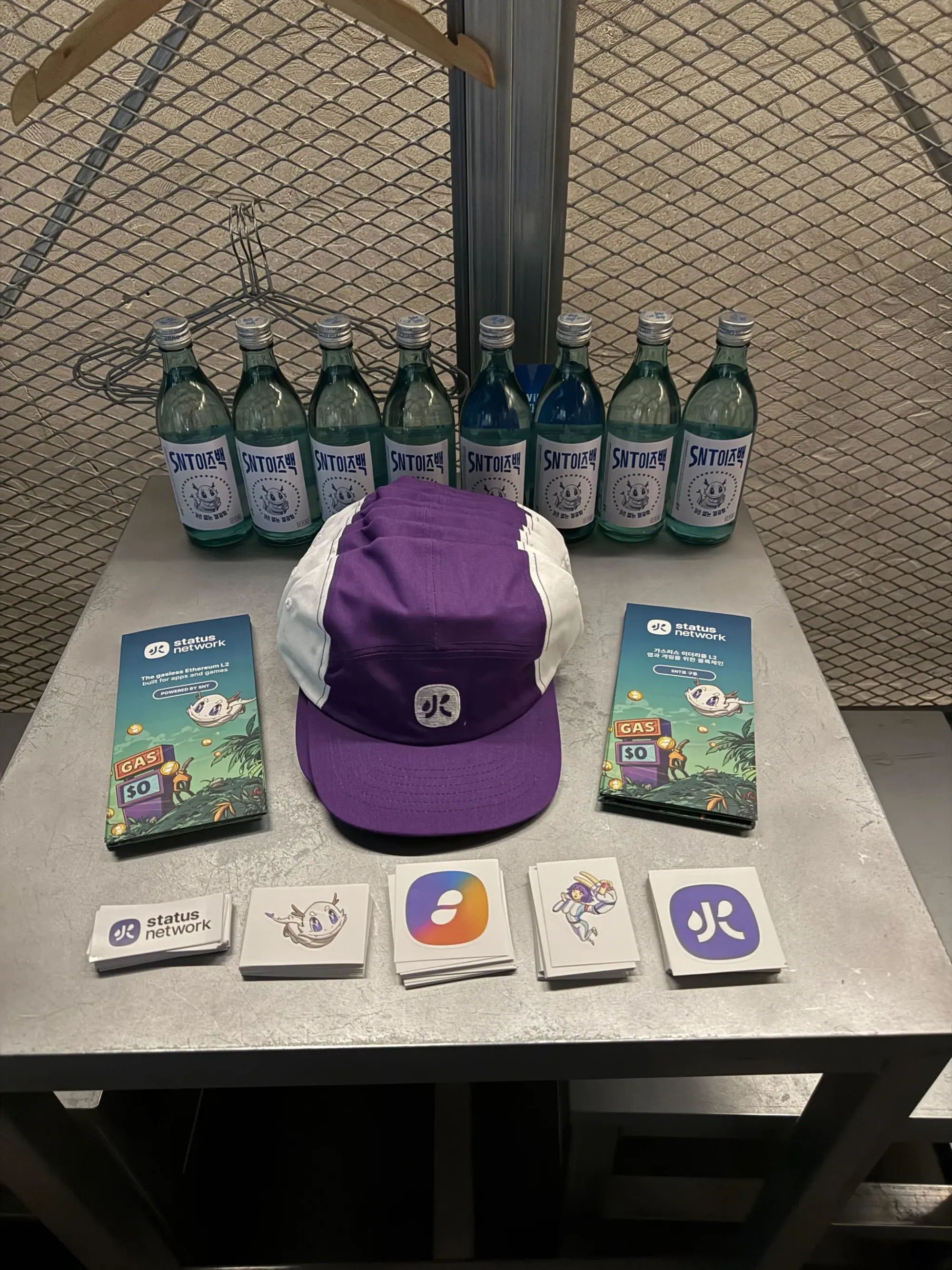
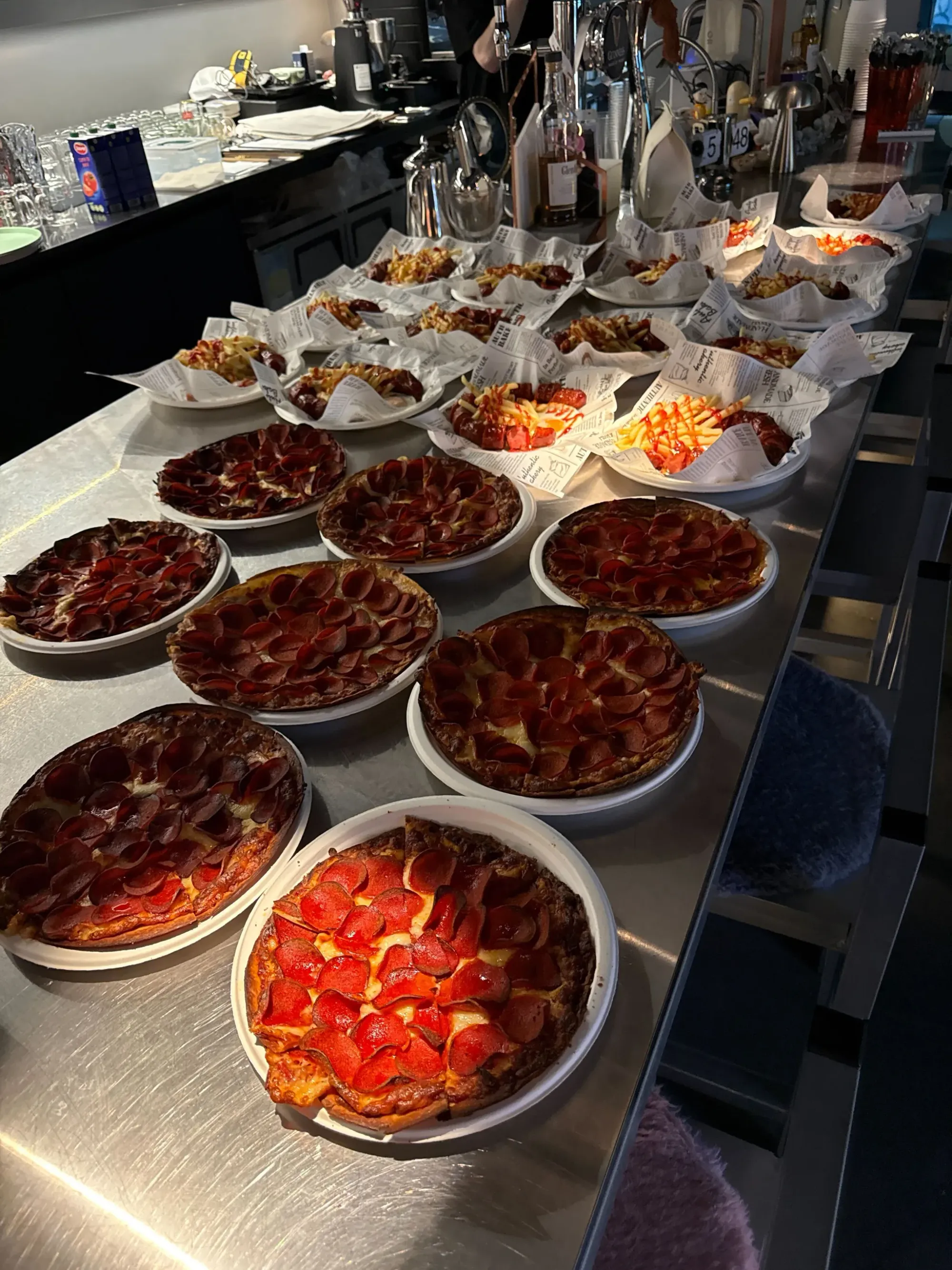
After the Status Network team, Splalabs and SpotZero, which are building apps in the Status Network ecosystem, and our fellow Ethereum incubator partner Fracton Ventures gave presentations, the event ended with a successful networking session with the builders in attendance.
On September 25th, Cyp once again participated in a key panel discussion. He introduced Status Network at the Korea RWA & Stablecoin Summit 2025 co-hosted by Undefined Labs and INFCL.
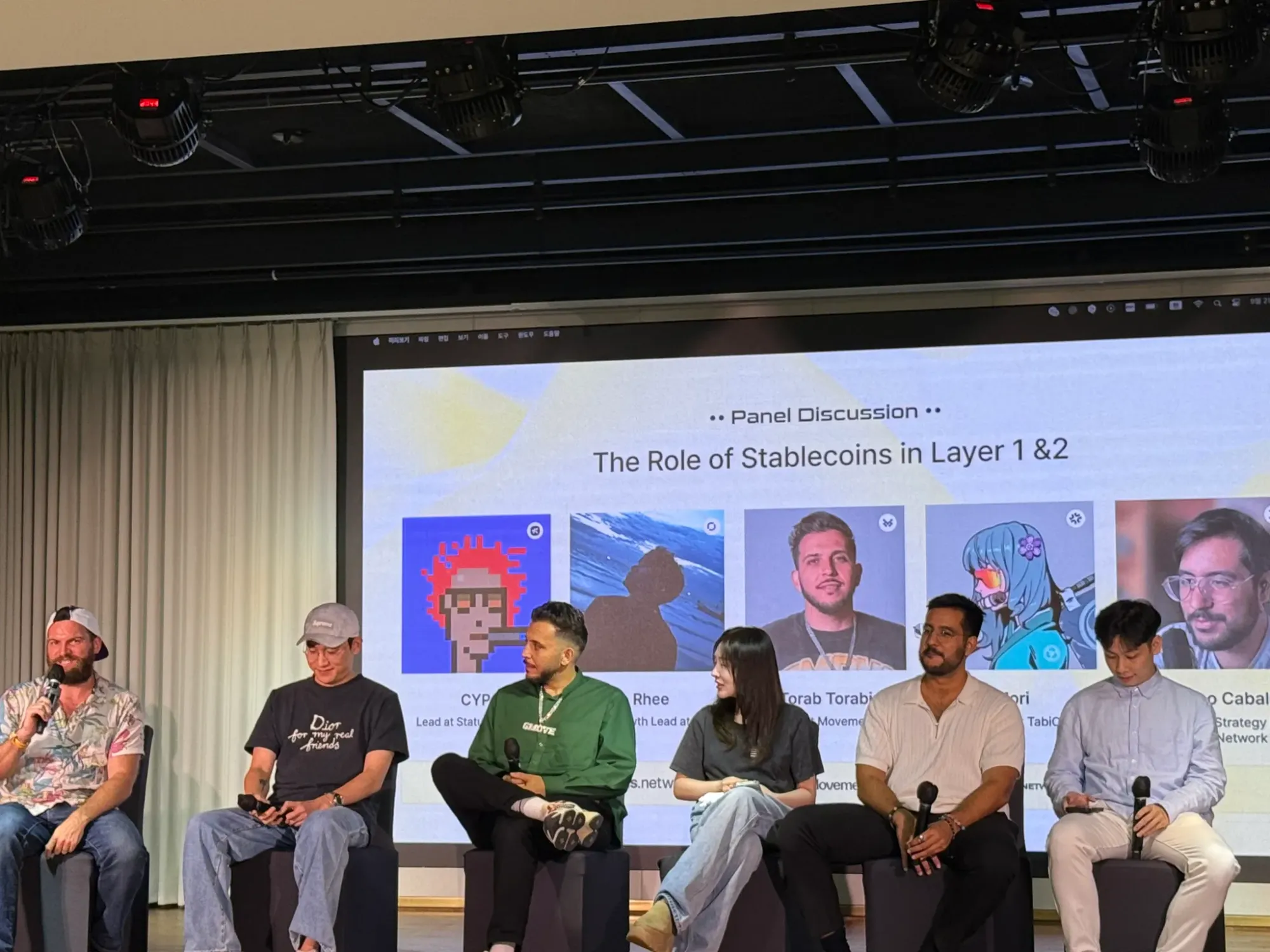
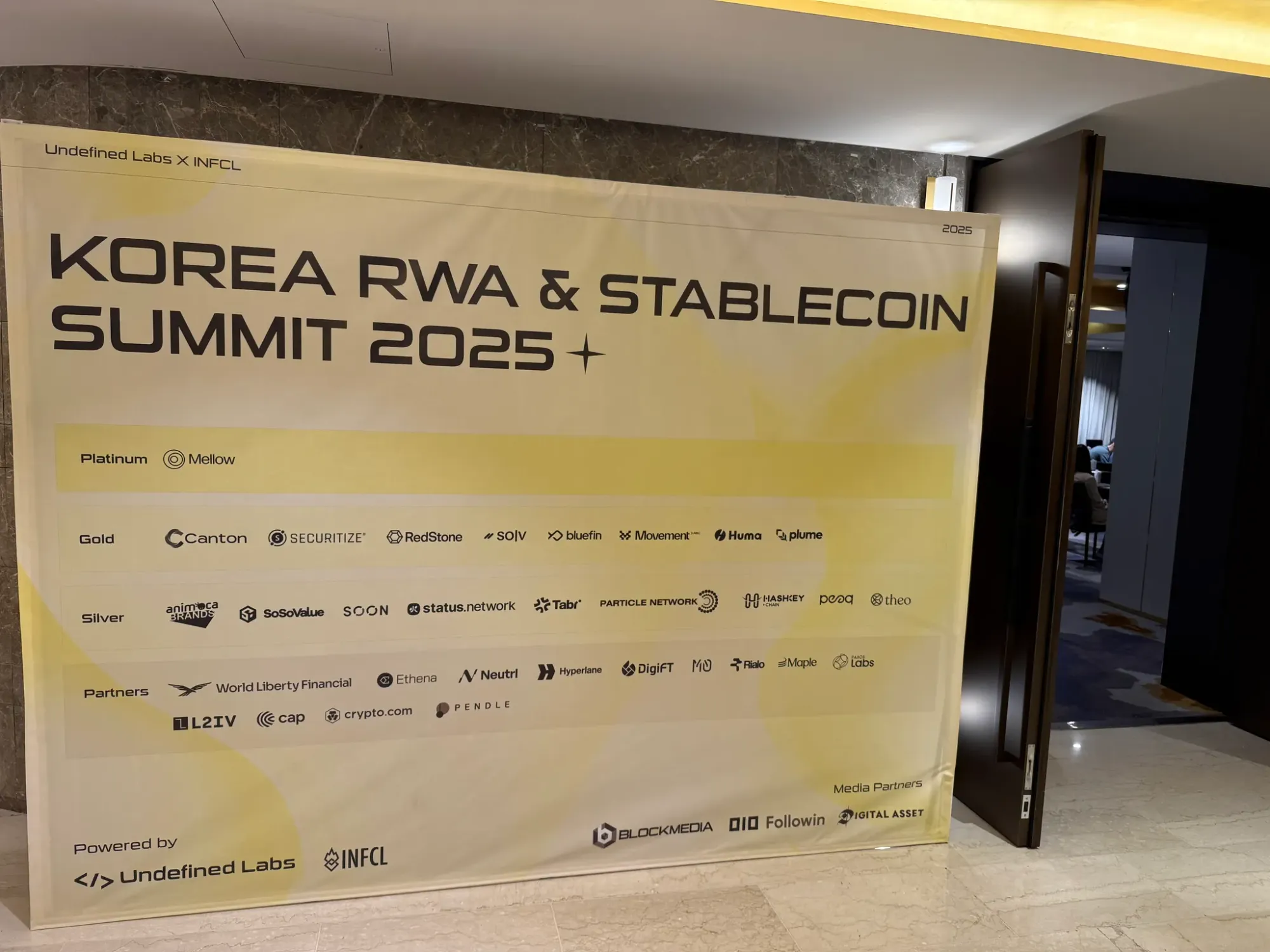
"Status started with messaging and crypto wallets, and now we're expanding into L2," Cyp said during the panel. "The reason we're building L2 is to provide gasless transactions at scale."
In particular, he emphasised that Status Network is "the first fully gasless chain with no gas natively on the chain" and explained that “we use a reputation system to make this possible, and we also have a built-in native yield for all participants."
He said this unlocks the unique opportunity of "earning yield directly on the chain from the moment you join the chain". He highlighted the role that Status Network can play in RWA and the stablecoin ecosystem, and was met with a number of questions and great interest from attendees.
During Korea Blockchain Week 2025, Status Network presented a vision that goes beyond mere technical innovation. With a strong foundation built since the SNT ICO in 2017, 5 million+ mobile app downloads of the Status app, 200+ core contributors as of 2025, and a consistently top-ranked activity on GitHub, Status has laid a strong foundation on which to build the first native gasless L2 blockchain for games and social apps.
Currently, Status Network is live on the Sepolia testnet v1 with gasless capabilities, and in November, the Hoodi testnet v2 will launch with added spam protection through the Karma reputation system.
Karma minting and native yield distribution will begin with the mainnet launch in Q1 2026.
Throughout the four days of KBW 2025, Status Network demonstrated industry leadership through technical innovation that accurately diagnosed the fundamental problems of the L2 ecosystem and provided concrete solutions, tangible community building with Korean builders, and a new paradigm for gaslessness and native yield.
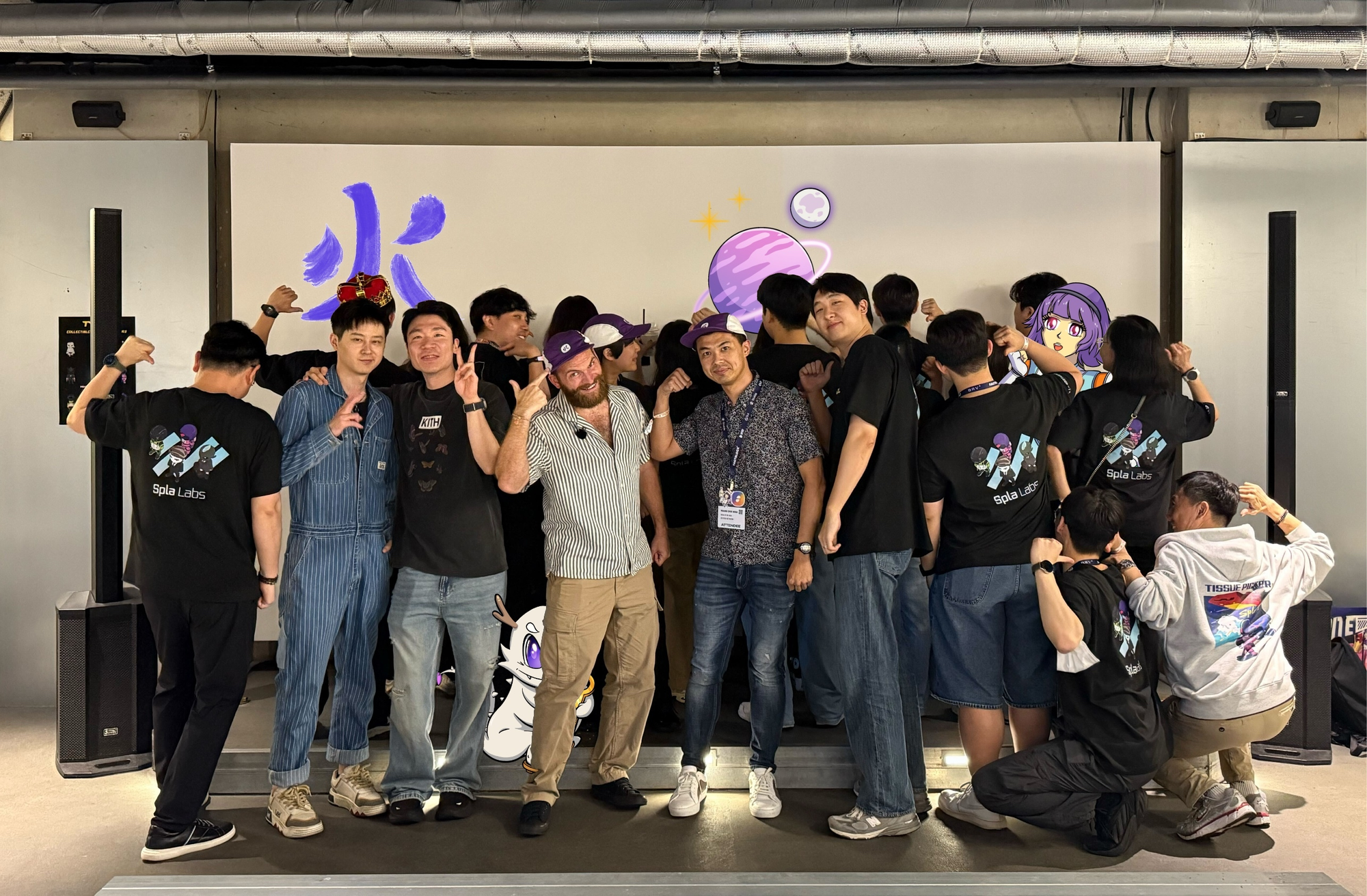
From discussing the scalability of L2-based dapps to the future of RWAs and stablecoins, Status Network made a strong impression on the Korean blockchain community by setting a new standard for Ethereum L2 innovation, especially with its innovative concept of "yield double-dipping," which opens up the possibility for DeFi apps to redistribute native L2 yields directly to users.
Going forward, Status Network will continue to innovate at the frontier of the blockchain ecosystem through building on its gasless transactions and sustainable public funding.
We hope that our presence at Korea Blockchain Week 2025 marks an important stepping stone for Status Network to grow with the Korean community on the global blockchain stage.
Status Network Official Homepage
Status Network Developer Documentation
Status Network X Account
Status Network Korea Community
Status Network Builder Community
